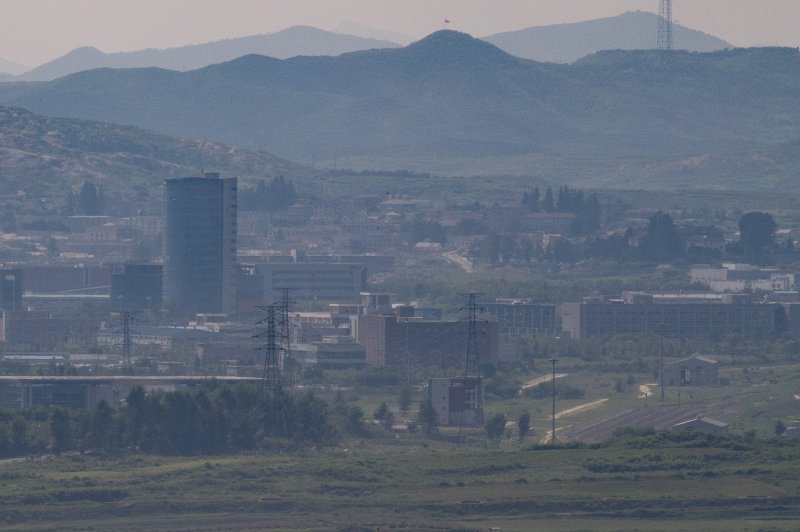Household appliances that were manufactured at a jointly operated factory park in Kaesong, North Korea, are making their way to China in the aftermath of sanctions. South Korean businesses were forced leave behind finished products in February 2016. Photo by Yonhap News Agency/UPI
Feb. 6 (UPI) -- South Korean electronic rice cookers that once rolled off the assembly line of a jointly operated factory park in North Korea are being sold in China, sources say.
After the shutdown of the Kaesong Industrial Complex last February in compliance with South Korea sanctions policy, South Korean businesses were forced to abandon stockpiles of unshipped merchandise in North Korea, including finished products like rice cookers.
Those items are now available for purchase in China, a source near the China-North Korea border said, Radio Free Asia reported Monday.
The source said the kitchen appliances bear the name of a leading South Korean brand, and that they were manufactured in Kaesong.
"It is my knowledge North Korea began to sell South Korean products left behind at the Kaesong Industrial Complex starting in mid-December 2016," the source said.
The source also said the sales reflect a larger trend of Chinese traders taking over the role of South Korean firms in the aftermath of increased sanctions that ban them from North Korea activities.
North Korea Kaesong factory workers, for example, have been transferred to free trade zones at the China-North Korea border where they work to assemble Chinese products, the source said.
Chinese companies have benefited from measures that have blocked inter-Korea economic cooperation at least since May 24, 2010, when Seoul declared the first round of economic sanctions against Pyongyang for its weapons program.
A second source in Dandong, China, said the 2010 sanctions have enabled Chinese merchants to step in to new businesses, and that as a result of sanctions the number of South Korean expatriates in Dandong has fallen to a third of its original population.
In Seoul, local news service MoneyToday reported South Korean firms that took business risks in Kaesong have yet to recover.
Other businesses that once led inter-Korea economic initiatives are still struggling with losses.
Hyundai Merchant Marine, a container shipping company that owns a North Korea resort, has lost half its market value on the South Korean stock market, according to the report.















